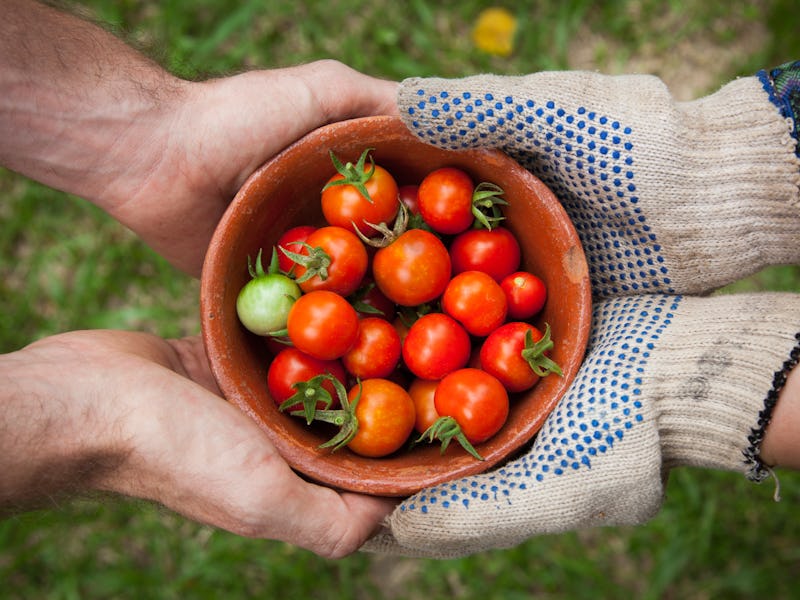There's a Surprising Psychological Trick for Making Someone More Generous
People are more beneficent with their money before it hits the bank.

Growing up, asking for money was kind of the family business. Both of my parents worked as professional fundraisers, and I learned how to write a grant proposal (the industry term for a nicely written letter asking someone for money) when I was 9 year old. As my mom gently explained at the time, you’ll get more allowance if you break down exactly how each dollar of that allowance will be spent.
This is an adapted version of our weekly Strategy newsletter, which offers reporting and insights about your career, life, and finances. Sign up for free here.
Specificity feels like an obvious strategy to strive for, but there are other, less-intuitive ways to activate a parent’s (or boss, donor, or customer service representative) sense of generosity. When people are asked to donate money they don’t technically have yet, for example, they’re more likely to donate, and they’ll donate more.
A new paper from researchers at the University of Exeter in the UK offers a few clues as to why a degree of uncertainty may unlock people’s more generous selves.
Say you have a tax refund on the way or you’re expecting a bonus. If I asked you to donate a portion of it to charity now, before it was in your checking account, you’d likely be more agreeable than if I were to ask you if you had it in-hand.
Trying to raise cash for a cause? Asking people to commit a portion of future windfalls might incite them to give more.
David Reinstein, an economics professor at the University of Exeter, tells Inverse that people are not terribly logical when it comes to money, and in the specific case of generosity, the opposite seems to be true.
In a series of five experiments, whose findings were just published in the Journal of Public Economics, Reinstein and his co-authors found that people who were asked to commit a portion of upcoming lottery winnings gave about 25 percent more on average when they were asked for money before they know the lottery’s outcome.
There’s a few theories for why people behave this way.
“One idea is related to, you might say this is the one we kind of came in with, is the idea that’s called prospect theory or loss aversion,” Reinstein explains. “That’s kind of related to the idea that once I’ve earned it, I feel like it’s my own, and I don’t want to part with it.”
Loss aversion is a common concept in behavioral economics. It basically argues that people care more about not losing $5 than they do about gaining $5, even when these are effectively the same transaction (like, say, evaluating a discount against a price hike).
One explanation is the so-called endowment effect, which argues that once something becomes “ours,” it becomes more precious than something which isn’t, even when whatever isn’t ours is a little better.
The inherent "preciousness" of our belongings is sometimes referred to as the endowment effect.
Reinstein also says the opposite explanation could be true: It’s precisely because the money’s not ours, yet that we feel like we have to commit more so that we get the same amount of warm fuzzies as we would if we were donating actual cash.
“If commitments are less likely to be realized, in order to feel equally good about ourselves, we have to commit more,” he explains. “‘How much do you want to donate if you win the lottery?’ At least per dollar I commit, it’s rather cheap. Because there’s a rather small chance I’ll win the lottery.”
Finally, Reinstein also says there’s a third possibility, which he calls the magical thinking effect. Perhaps, he says, people are simply inclined to give more ahead of finding out they’ll win a lump sum because they believe, deep in their heart-of-hearts, that being more generous now will improve their chances of winning, whether through Karma or divine intervention or whatever.
The most obvious takeaway is for people trying to raise money for charities: Ask people for money they don’t have yet — like, say, a percentage of future earnings — and they’ll probably commit more. But Reinstein also says its possible these effects may carry on into other, more casual forms of generosity, like asking someone for a favor. “If you ask someone for a favor, are you more likely to say yes the less likely you are to have to follow through on it?” he muses. “That’s interesting to think about.”
One particularly interesting experiment I’d love for some Strategy readers to try out? See if you can apply Reinstein’s findings to a salary negotiation. Assuming that it is the uncertainty here that is important, the principle suggests that you’ll have more luck asking for raises that are conditional on future accomplishments than you would pointing to all the great stuff you’ve done in the past.